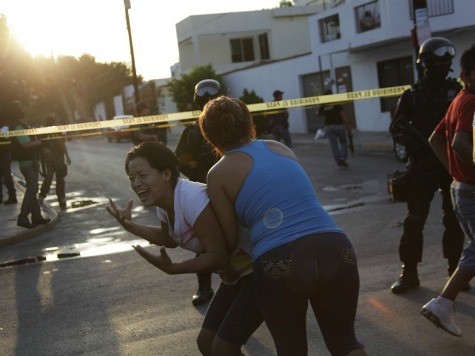
One of the top motivations for Mexican citizens coming to the United States is that there are more economic opportunities north of the border. After guest-workers were limited in the 1960’s, illegal entry into the United States increased substantially.
The Bracero program, an agricultural guest-worker effort that spanned 22 years, initiated as an effort to replace agricultural workers as US citizens went off to fight in World War II. Unions and other left-of-center interests shut down the Bracero program in 1964. This was accomplished under the guise of exposing the harsh working conditions the legal guest-workers endured.
The consequence was an increase in union power, but many of the former legal workers from Mexico simply returned, now illegally, with even fewer protections than they had previously enjoyed. Thus our modern immigration problem was born.
Decades passed with Democrats and Republicans debating the dilemma between “helping neighbors who just want more opportunities” and “protecting the rule of law.” Even former President Ronald Reagan gave in and granted amnesty to the foreign workers the Democrats and unions had forced into illegality. No significant changes in enforcement were made, and the nation now faces the same arguments for amnesty as Reagan faced in the 1980s.
Another significant concern in relation to illegal immigration began to become visible around 2006: Mexican drug cartels. Since that time, thousands have been killed as cartels battle each other, along with any public official or private citizen who attempted to interfere with their operation or territorial control. Entire police forces have either been disbanded for helping the cartels or have fled for the lives of themselves and their families after refusing to be corrupted.
Some of the cartels, most notably the Los Zetas, have crossed the line from being a criminal enterprise into being an armed insurgency, having more power and control in many regions than the Mexican government.
In one instance, the Los Zetas forcibly entered the town of Ciudad Mier and caused thousands to flee for their lives. Many of the town’s 8,000 civilians were driven away from their homes and communities. Many of them found their way across the border and into Texas. They could arguably be catalogued as war refugees or asylees.
The Mexican government’s refusal to admit a state of civil war exists in their own territory complicates any effort to properly aid these victims and properly classify them. The US government, as of yet, has not made an honest assessment of the incompetent neighboring government. Instead, these victims simply become classified as illegal aliens.
There has been an increase in Mexican citizens requesting political asylum in the United States, according to Fox News Latino. Though the numbers are currently relatively small in comparison with such requests from citizens fleeing nations like China, they are growing. The Miami Herald reports that three times the number of Mexican citizens won political asylum in the US in 2012 than from six years earlier, reaching a 2012 total of 130. The Herald also references a 2012 US Department of Justice report revealing 9,206 Mexican citizens applied for political asylum in the US.
US citizens and media interest in the shared US/Mexico border will likely increase knowledge of the conditions Mexican citizens are enduring that has killed so many innocents. US media outlets and citizen journalists have begun identifying and giving voice to the few courageous Mexican counterparts left alive who are still willing to tell the world what is occurring there. Many of these Mexican truth-tellers have to hide their identities, lest they add to the numbers of the 70 journalists and media workers who have died in Mexico since 1992.
As US activists’ understanding of the region increases, both on the right and left, pressure on the Mexican and US governments to properly classify the conflict and its victims will likely have a significant impact on the immigration discussion, as well as the numbers of Mexican citizens winning asylum in the US. A national discussion on the true circumstances facing the peoples of northern Mexico, on how classification failures of the Mexican government contribute to the crisis of Mexican citizens, and the inevitable security threats to US citizens across a river from an armed insurgency, not “gangs,” would likely steer discussion on immigration reform in a more effective direction with more accurate talking points.


COMMENTS
Please let us know if you're having issues with commenting.